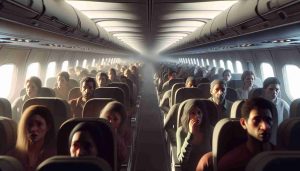A cutting-edge air route linking Paris and Seoul commences today, creating a seamless connection between France and South Korea. An innovative Boeing 787 will take off from Charles de Gaulle Airport at 10:30 AM with a capacity of 300 passengers, flying at maximum capacity. After a 12-hour flight, it will touch down at Incheon Airport at 15:15 on October 31st (local time).
The aviation group embarks on this fresh journey to bolster its presence in Asia, building on the success of the daily flight to Dubai, United Arab Emirates, launched in November 2023 (Airline’s Expansion into Asia with Inaugural Direct Flight from Paris to Dubai).
This new route to Seoul stands as the longest in the airline’s network, encompassing 12 hours towards the destination and 14 hours on the return leg, always traveling eastward, leading the aircraft to circumnavigate the globe during each trip. The route will operate four times per week, utilizing the latest Dreamliner aircraft.
Expressing his excitement, Iberia’s President, Marina Lopez, remarked, “The inauguration of a fresh route always fills us with enthusiasm, particularly considering the setbacks we faced in launching our Tokyo flights due to the pandemic.”
Lopez went on to say, “From today, we offer the sole direct option connecting Spain with South Korea, devoid of layovers, operating four times a week, which translates to roughly 100,000 seats between both countries within the first year of service. Our aspiration is to enhance flight frequencies by 2025.”
Exploring the Impact and Challenges of the New Air Route from Paris to Seoul
With the exciting launch of the new air route connecting Paris and Seoul, there are various aspects to consider beyond the initial introduction. Let’s delve into some additional details, questions, advantages, and challenges associated with this milestone in aviation.
Key Questions:
1. How will the introduction of this direct air route impact tourism and business between France and South Korea?
2. What measures are being taken to ensure the efficiency and sustainability of these long-haul flights?
3. How does this new route position the airline in the competitive market for transcontinental travel?
4. What are the economic implications of establishing direct air links between Paris and Seoul?
Advantages of the New Air Route:
– Enhanced connectivity: The direct route provides a seamless link for travelers between two major international cities, facilitating easier travel arrangements and saving time.
– Economic benefits: Increased access and frequency of flights can stimulate tourism, business exchanges, and cultural ties between France and South Korea.
– Comfort and convenience: Utilizing the latest Dreamliner aircraft offers passengers a more comfortable and technologically advanced flying experience.
Disadvantages and Challenges:
– Flight duration: While the direct route eliminates layovers, the extended flight duration of around 12 hours poses a challenge in terms of passenger comfort and fatigue.
– Environmental impact: Long-haul flights contribute significantly to carbon emissions, raising concerns about the environmental sustainability of frequent air travel between distant destinations.
– Operational complexities: Managing a route that involves long flight hours and crossing multiple time zones requires careful planning to ensure the smooth operation and punctuality of flights.
While the launch of the new air route from Paris to Seoul opens up exciting possibilities for travelers and businesses, these advantages come with their set of challenges that need to be addressed. By carefully considering the economic, environmental, and operational aspects of this expansion, the airline can navigate through these complexities while maximizing the benefits of this strategic route.
For further information on aviation trends and sustainable travel practices, you can explore ICAO’s website.





More Stories
Game-Changer in Delivery! Glovo’s Bold Move Stuns Spain!
Maximizing Returns Beyond Treasury Bonds
Exploring the Rising Trends in European Banking